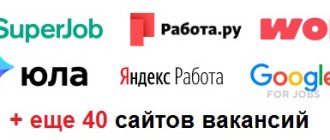What is a Product Manager?
The product manager is responsible for the creation of new services and products, assortment policy, market analysis, promotion, pricing, and formation of product requirements. The responsibilities of such a specialist include active interaction with technical support, marketing, sales, and production.
The product manager himself develops the idea, justifies the benefits for the company, organizes and controls the work on the project. This is the one who moves the business forward.
How is Product owner, Product manager junior, Product manager translated and what is the difference?
In large companies with a large number of strategic divisions and positions, confusion arises in understanding the roles and functional responsibilities of employees. This confusion occurs especially often in the case of a product manager and a product owner.
A product owner manages a project and a set of projects to create a specific product or service. This specialist works with a team, has minimal technical skills and understanding of all stages from development to UI\UX, interacts with consumers (from testing to feedback and support), and controls the budget. At the same time, the Product owner is not the project manager, although in some cases the positions may be combined.
Product manager works with the market, analyzes customer needs, the presence of competitors, is responsible for the direction of product development, determines pricing and assortment policy - this is the difference. The main task of this specialist is to make the product successful and provide a return on investment.
A product manager can be junior, middle or senior. These positions have nothing to do with the employee's age. Juniors are inexperienced and work with clear initial data (the audience is known, its problems are known, the boundaries of responsibility are set) within the team. Middles balance internal and external focus. The senior develops relationships with other teams, expands the boundaries of his circle, monitors the market, and develops a strategy.
A product manager must be ambitious and communicative
Market orientation that no one is doing
Don't confuse market orientation with customer development.
The point of the first is that you don't know anything about the product until you ask the user. Customer development is one of dozens of methods of qualitative analysis. It, like any qualitative research, does not work without quantitative analysis and vice versa. The point of Market Orientation is that you are the least qualified person to have an opinion about your product because you are biased. Thus, your opinion is not only stupid, but also dangerous.
Quantitative and qualitative research
are done together. Without qualitative, you will ask the wrong questions and end up with the wrong answers, and without quantitative, you will be making a product for the focus group, not for the user.
Working with the audience.
Judging by job descriptions, 6 to 8% of a product manager's job is to go out and ask the audience what they need. In reality, everything is even worse - you have no time.
If you don't focus on the market, stupid things happen to you:
Here is the first example of mistakes that non-market-oriented marketers and product managers make. There are two lists in the picture:
- The first is the communication channels that are chosen by the audience that prefers certain product categories.
- The second is the communication channels that marketers choose to promote these product categories.
The fact that it is in the top of the audience’s perceptions is in the f*ck of the priorities of marketers.
Or let's say you're writing a brand purpose document that tells people how their lives will change and they will become something they are not. When you write, you imagine Elon Musk because you want to be like him. And, judging by the data of the Ministry of Labor, the ultimate dream of Russian users is the captain of an ocean-going vessel.
As a result, you will write a communication strategy not for your audience, but for yourself.
Responsibilities and Job Description of a Product Manager
The product manager overlaps in functionality with other specialists working on the project. An employee's job description usually includes the following items:
- Analysis of customer needs, market research.
- Selection of a technical solution together with developers.
- Calculation of product economics and determination of profitability.
- Selection of specialists for the team, setting tasks and monitoring implementation.
- Interaction with partners and vendors (companies that produce products under their own brand).
- Product support after implementation, development and improvement.
Such a specialist can be an engineer, a project manager, a team lead (lead developer), or, in rare cases, a marketer.
Product manager occupies an important place in the structure of the organization
Diagnosis, strategy and tactics
Neither “research” nor “analysis” leads to action. When you visit a doctor, you don’t want him to “investigate” and “do tests,” but you want him to say that he will treat you.
Red is what we see most often, and green is what we want.
If the product knows what to “treat”, it becomes clear whether it makes sense to do it or whether it needs to do other things. But more often than not, we start managing products from the wrong side—not from defining the problem, but from choosing solutions.
Personally, the classic four Ps are enough for me in tactics:
If you only deal with product changes, you as a product manager are not even suitable for cat food. You are unsuitable as a professional, because Product is 8% of product management, you missed the remaining 92%. This is called featureism, and many products suffer from it.
Many of us have witnessed situations where a product manager, at a meeting with stakeholders, bangs on the table: “Okay, guys, let’s speak the language of business.” At this moment, you can notice that the stakeholders turn away so as not to laugh. The fact is that a person who considers himself a product manager begins to juggle with metrics: ROI, ARPU, CTR. Then the meeting will either end quickly, or the stakeholder will cling to one of the abbreviations and set a stupid task for the product. The product takes the lead and rejoices at how he pinned this stakeholder down with data.
Metrics by themselves don't mean anything.
Metrics are not the language of business, metrics are sensitive molecules with tentacles that grow from unobvious places in your business. The language of business is diagnosis, strategy, tactics or problem, plan, solution.
Product Manager: Training and Courses
The position of Product manager can be taken by a university graduate with a diploma in creating software products, information systems, advertising, or trading business. But product management involves acquiring competencies in marketing, development, team and project management. You need to understand the life cycle of the product, the needs it satisfies, understand the target audience, and the technologies that will be involved in creating the product.
Russian universities have already launched training programs for product managers. For example, the St. Petersburg Polytechnic University is implementing a bachelor’s program “Technology for the development and maintenance of a high-quality software product,” Moscow State University of Transport — “Project Management in the Innovation Sphere,” MSTU named after. Bauman - “Investment management of knowledge-intensive enterprises.”
To start working as a product manager, all you need to do is take courses. Listeners are specialists who are already part of the product team and want to improve their level, people whose work is not related to IT, students whose goal is to become at least a product assistant.
The program for a Product manager should include the study of customer development (testing on potential consumers), unit economics (an economic modeling method for determining profitability), product marketing, forming hypotheses using A\B tests and product analytics.
Additional useful modules that are found in some training programs:
- creating user portraits and Jobs-To-Be-Done (method of using portraits);
- onboarding (user training, process of getting to know the product);
- Scrum, Agile methodologies;
- Kanban production management system, working with a team;
- Marketing communications;
- PR of digital products.
When choosing a course, you need to pay attention to the experience of the teachers and their ability to present cases from their field. It would be desirable to have the opportunity to ask questions and interact with the curators.
Online learning (“Netology”, Geekbrain, Skillbox, proprietary courses from experts, large IT companies) is more suitable for those who already have experience in management and working on a product in one of the positions. Beginners are better off choosing full-time courses. This is especially important if the program has a module for developing soft skills for team management.
Natalya Garakhanova, leading producer of Netology, says that the majority of working product managers moved to this area from borderline professions. Everyone has weaknesses that need to be developed: analysts need to pay more attention to making the product understandable to the user, marketers need to acquire technical skills, and designers need to learn business modeling and finance.
Manage product, not development
A product manager manages the product, a project manager manages the development team. So that you are not considered a project manager all your life, but are considered a product manager, you need to engage in product management. The product is managed using a framework known to everyone since the time of Noah and his ark:
Audience.
They forget about it because they believe that the target audience is 100% of people connected to the Internet. It is not right.
If we say that the target audience of the game is console players who prefer competitive gameplay, a lot of questions will remain. Who is this, how and where to look for them? Do they play sports simulators or session shooters?
The point of segmentation is to describe a segment that is monolithic internally in terms of relationships, preferences, etc. Social democracy ranks last - it matters only in special cases.
Sales funnel.
If you work with a product, you will have to understand how to work with a sales funnel. Bad news again - the funnel does not start on the landing page, but much earlier. Many product managers and entire companies ignore all stages of the funnel except the moment of making a purchase and, paradoxically, lose sales.
Sales Funnel Strategy.
The principles have not changed since people realized that you can draw a map, show where the enemies are on it, and draw an arrow: if they are waiting on the left, we will go around them on the right.
A strategy has no meaning if it is written for more than a year. Those who ask for plans for three or five years know this and do not expect the truth, starting from the 13th month. They know that in six months or the first 12 months you will come and say: “There are clarifications.”
A strategy for more than a year is a drug addict’s extrapolation that has no relation to reality.
If you are a product director, then in strategy you define the products with which you interact.
If you are a product manager, these are the features you will interact with for the first year. You also determine the audience segments you plan to work with and your positioning against these segments. From this you derive problems or goals. It is realistic to achieve three goals in a year, the fourth is optional, in a jump. Tactics.
Any number of P (Product, Price, Promotion, Place) or C (Customer, Competition, Company) you like. Read more about this in the article.
Where to look for vacancies
The easiest way to find work is for specialists who are already working on a project. In this case, you can simply grow to the position of product manager. For those who have retrained from another profession, completed training and are ready to work, it is a little more difficult - you need to look for junior vacancies or at least get a job as a product assistant to see everything from the inside.
General Director of the Pomogatel.ru service Mikhail Sorokin says that without experience, you can get a job as a contact center consultant in the company. With due diligence, a specialist can rise to the rank of manager and then become a product manager.
You can search for vacancies on open aggregator sites (HeadHunter, SuperJob, Trud, Indeed), on social networks VKontakte, Facebook, LinkedIn (by hashtags, in city or specialized communities), on specialized forums and freelance exchanges.
Features of the profession
The job responsibilities of a product manager depend on his field of activity. If this is the IT industry, then the product manager can manage the creation of a website, game, mobile application, etc. In food production - the creation of new types of products or expanding the range of already known ones by adding new ingredients and improving quality. Functional responsibilities may vary depending on the type of activity of the company - manufacturer, dealer, distributor.
But common to all industries is the product creation life cycle, which consists of the following stages:
- research and planning;
- design development;
- implementation and testing;
- release and promotion.
Within this cycle, the product manager manages product development by performing the following functions:
- studying the market of competitive products and the industry as a whole;
- drawing up a plan and strategy for the creation and development of a new product;
- planning KPI (key performance indicator - key performance indicators) of the product by time frame (short-term and long-term);
- control over product production;
- preparing and conducting product presentations for customers;
- development of pricing policy, system of discounts and benefits;
- preparation of documents for product certification in state certification bodies;
- monitoring product sales, demand for it, conducting sociological surveys for the purpose of subsequent improvement;
- development of methods to increase sales;
- negotiations with clients.
How much can you earn from product analytics?
According to HeadHunter, the salary in the vast majority of vacancies for the position exceeds 90 thousand rubles. per month.
Maria Epifanova, head of the department of the personnel holding company “Ankor”, says that a product manager with two years of experience can receive a fixed part of 130-150 thousand rubles. per month and bonuses for individual achievements.
Industry representatives are positive about the prospects for the profession. Product management will continue to develop not only in IT, but also in other industries. A high-quality Product manager from Russia can continue his professional activities in Western countries.
Who are employers really looking for?
Employers communicate their ideas about product management to the market through job descriptions. If you read vacancies for “product managers,” it becomes clear that most employers are not looking for them at all. For example, advertisements from Wargaming and EPAM are vacancies for everything except product management:
Wargaming - 10 words on product management
EPAM - half of the point is related to product management.
These companies are looking for producers. Producing is a rewarding profession and has been around for a long time in the entertainment, film and music industries. The problem is that it has nothing to do with product management.
A producer is a person who does what is said for money and using the resources that are available. It doesn’t matter to him what happens to these resources later, if we’re talking about people. Thus, Les Grossman in “Tropic Soldiers” is the archetype of a real producer. It is also important that the producer can set the lights, sit behind the camera or the mixer console. He knows the craft often as well as the performers. In general, a producer is a PM on steroids. I'll be happy if most product managers are renamed producers, because that will be true.
Our typical product manager doesn’t really know how to code, but he really wants to, so he found a place next to the developers and works with them. Because of this, I will soon stop calling myself a product manager, because it would be indecent to introduce myself as such, especially among real businessmen. “Product manager” for them is an unclear role with a vague meaning, but these are the customers of our work.







